Related Research Articles

Ferrymead is a suburb south-east of Christchurch, New Zealand. It is the main thoroughfare for reaching the eastern sea suburbs such as Sumner, as well as home to a number of cliff-top residences and businesses along the estuary front. After the 2011 Canterbury earthquake, a number of prominent Christchurch businesses relocated to the Ferrymead area, making it into a secondary business hub.

William Sefton Moorhouse was a British-born New Zealand politician. He was the second Superintendent of Canterbury Province.
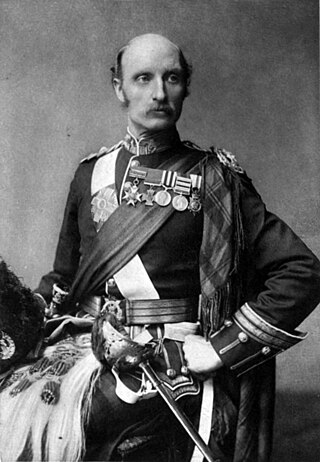
Field Marshal Sir George Stuart White, was an officer of the British Army. He was stationed at Peshawar during the Indian Mutiny and then fought at the Battle of Charasiab in October 1879 and at the Battle of Kandahar in September 1880 during the Second Anglo-Afghan War. For his bravery during these two battles, he was awarded the Victoria Cross. He went on to command a brigade during the Third Anglo-Burmese War in 1886 and became commander of Quetta District in 1889 in which role he led operations in the Zhob Valley and in Balochistan. He was commander of the forces in Natal at the opening of the Second Boer War and fought at the Battle of Elandslaagte in October 1899. He commanded the garrison at the siege of Ladysmith: although instructed by General Sir Redvers Buller to surrender the garrison he responded "I hold Ladysmith for the Queen" and held out for another four months before being relieved in February 1900. He finished his career as Governor of Gibraltar and then as Governor of the Royal Hospital Chelsea.

Sir John Hall was a New Zealand politician who served as the 12th premier of New Zealand from 1879 to 1882. He was born in Kingston upon Hull, England, the third son of George Hall, a captain in the navy. At the age of ten he was sent to school in Switzerland and his education continued in Paris and Hamburg. After returning to England and being employed by the Post Office, at the age of 27 he decided to emigrate. He was also Mayor of Christchurch.

Sir Gilbert Heathcote, 1st Baronet was an English merchant and Whig politician who sat in the English and British House of Commons between 1701 and 1733. He also served as the governor of the Bank of England and was Lord Mayor of London in 1711.
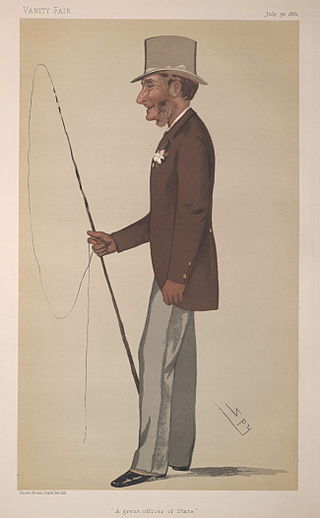
Gilbert Henry Heathcote-Drummond-Willoughby, 1st Earl of Ancaster,, known as 2nd Baron Aveland from 1867 to 1888 and as 25th Baron Willoughby de Eresby from 1888 to 1892, was a British Liberal politician and court official.
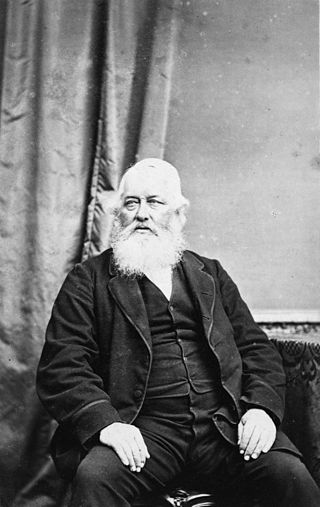
Sir John Cracroft Wilson, also known as Nabob Wilson, was a British-educated civil servant in India, farmer and politician in New Zealand.
Bulli was an electoral district of the Legislative Assembly in the Australian state of New South Wales in the Bulli area. It was originally created in 1930, replacing Wollongong. In 1971 it was abolished and was divided between the new electoral district of Heathcote and Corrimal. In 1991, Heathcote was abolished and Bulli was recreated. In 1999, Bulli was abolished and Heathcote was recreated.

Samuel Sullivan "Sunset" Cox was an American Congressman and diplomat. He represented both Ohio and New York in the United States House of Representatives and served as United States Ambassador to the Ottoman Empire.
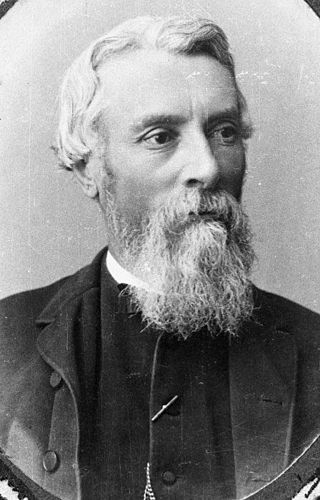
Frederic Jones was a New Zealand politician. Originally from England, he settled in the colony in 1863 for health reasons.
Heathcote was a 19th-century parliamentary electorate in Christchurch, New Zealand.

Isaac Thomas Cookson was a 19th-century Member of Parliament in Canterbury, New Zealand. He was a prominent merchant in early Canterbury.

John Ollivier was a Member of Parliament in New Zealand, but was better known for his membership of the Canterbury Provincial Council. He was the second chairman of the Christchurch Town Council.
The 3rd New Zealand Parliament was a term of the Parliament of New Zealand. Elections for this term were held between 12 December 1860 and 28 March 1861 in 43 electorates to elect 53 MPs. Two electorates were added to this during this term, Gold Fields District and a new Dunedin electorate created by splitting the existing City of Dunedin into Dunedin and Suburbs North and Dunedin and Suburbs South, increasing the number of MPs to 57. During the term of this Parliament, six Ministries were in power.
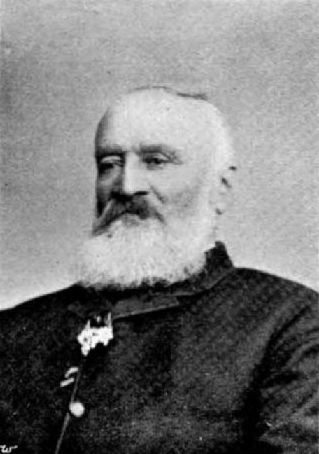
Alfred Cox was a 19th-century runholder and Member of the New Zealand House of Representatives. Born in New South Wales into an upper middle class military family, he was sent home to England to learn about farming. Upon returning to New South Wales, he heard about the large profits that were possible in South Canterbury and bought licences for land that he had not seen. He stocked the land, put a manager in charge and made another trip to England with his wife and their, at that time, small family. He moved to New Zealand permanently in 1857 and lived on his large farm, Raukapuka, which stretched from the sea to the foothills, and of which the homestead was located in present-day Geraldine. He sold his South Canterbury interests and moved to the Waikato, where he bought large land holdings in Hamilton and Thames. He tried to drain his swamp land and lost a lot of money with those ventures. He sold up in 1882 and moved to Christchurch, where he retired.
Melville PortalJP, DL was a British Conservative Party politician from Hampshire.
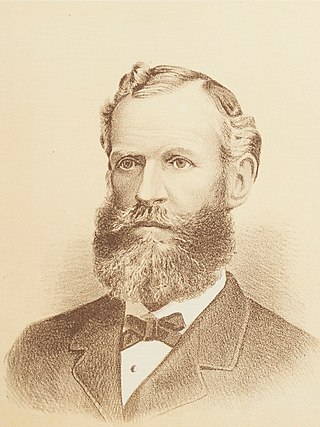
George Henry Cox was an Australian politician. He was a member of the New South Wales Legislative Council between 1863 and 1901. He was also a member of the New South Wales Legislative Assembly between 1856 and 1859.
Lee Justin Evans, an Australian politician. He was a member of the New South Wales Legislative Assembly representing Heathcote for the Liberal Party from 2011 until 2023.
Heathcote, an electoral district of the Legislative Assembly in the Australian state of New South Wales, has had two incarnations, the first from 1971 to 1991, the second from 1999 to the present.

John Norman Heathcote was a British author, watercolourist and photographer, who wrote the book St Kilda, published in 1900, about the Scottish Hebridean archipelago of St Kilda.
References
- ↑ "Heathcote Election". Lyttelton Times . 29 October 1863.